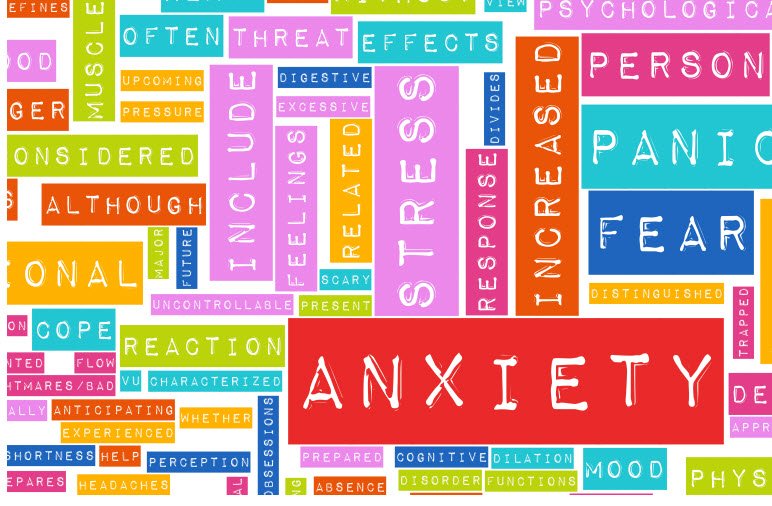
Dear Dr. Hurd,
While waiting in line recently, a woman and I were having a casual conversation. In response to my question, she said she was a Job Coach and worked with students with ED, then further defined the acronym as Emotional Disabilities.
I am interested in receiving your explanation of ED. I do not understand how a person can be disabled emotionally. One can be emotionally out-of-control, emotionally unstable or even an emotional misfit. Since emotion is an integral part of being human, how can a person be disabled emotionally? I don’t get it.
Here’s the “official” definition of emotional disability, as defined by the Individuals with Disabilities Education Act of 2004: An emotional or behavioral disability is a disability that impacts a person’s ability to effectively recognize, interpret, control, and express fundamental emotions.
Personally and professionally, I have a problem with the whole concept of emotional disability. “Disability” implies an automatic mechanism, as in a physical illness, where there’s no control possible on the part of the person with it. For example, if a genetic defect, illness or injury renders your legs, arms, eyes or ears no longer functional, there’s nothing you can do about the damage itself. Or if your brain is damaged due to a stroke or injury, there’s nothing you can do to “undo” the damage.
The term “emotional disability” is misleading, because it implies the person with the disability is permanently unable to manage his or her emotions. That’s what the disability refers to: an inability to manage or control your emotions in ways that people normally can or will.
I spend countless hours in therapy with people, often helping them challenge the unfounded assumption that something about themselves makes them “damaged goods” or unfit for existence. And here on the other side we have the entire mental health industry and establishment spreading the view, often with federal funding, that you probably are damaged goods and “emotionally disabled.” Frankly, it’s sick and wrong.
It’s more accurate and helpful, in my view, to view emotions as automatized habits. They’re subconscious responses. They’re not usually deliberate; that’s true. But it does not follow that they’re disabilities, either. You’re not necessarily helpless over your emotions just because you have troubling ones.
Clearly, some people have emotional problems. It’s self-evidently true, and any mental health professional knows this. However, it’s a leap to call something a disability. It’s bad for the allegedly disabled person. It tells the person, “You cannot control your emotional response. You have no responsibility over it.” If that’s true, then what’s the point of psychological or behavioral therapy, the very things often funded by this act of Congress? It’s disingenuous and even dishonest.
It feeds the fallacy that psychological “treatment” is an act of passivity, kind of like submitting to surgery or medication are passive activities. That’s not what psychological therapy or counseling is, because that’s not how the mind operates. A client of mine put it this way: “I like sessions with you because you think along with me. You’re my thinking partner.” That’s exactly right. I provide an opportunity or forum in which people may think. With an emotionally troubled person, this includes processing and thinking about your emotions. Nobody can do this for you, and nobody can make you do it. In theory, somebody could forcibly knock you out and make you submit to medication or surgery. With psychological therapy, it cannot be done. Somewhere along the way, you have to engage your mind — willingly. Your therapist is your partner in the process, not your surgeon or “treatment provider.”
I recognize there’s money in fallacies. The Individuals With Disabilities Education Act provides millions of dollars, investing both patients and providers in the idea that emotional disabilities are medical maladies somehow in need of treatment. Interestingly, the more we open the floodgates, the more emotional disabilities we discover. We then throw millions more at the problem, and we discover still more. Go figure!
Emotions are an integral part of being human. It’s true that emotions can become part of the problem. But emotions are merely the output of your mind. If you’re having emotions that don’t make sense or don’t serve the interest of your own serenity and peace-of-mind, then there’s a problem to address. But it’s a problem with the way you’re viewing life, yourself and the world. Or it’s a problem with your behaviors. Or your logic. The problem somewhere resides in how you’re subconsciously thinking or approaching your life. It’s not simple, and help is often crucial. But the nature of help as defined by the concept “emotional disability” isn’t what most people assume it is.
Stanton Peele, one of my favorite psychologists, once wrote that these Orwellian disease labels applied to mental health exist to prepare us for a world we cannot hope to understand or change. While such a world may suit the treatment providers who cash in on the futility such labels foster, it’s certainly not good for the “patient” or person.
Follow Dr. Hurd on Facebook. Search under “Michael Hurd” (Rehoboth Beach DE). Get up-to-the-minute postings, recommended articles and links, and engage in back-and-forth discussion with Dr. Hurd on topics of interest. Also follow Dr. Hurd on Twitter at @MichaelJHurd1
Check out Dr. Hurd’s latest Newsmax Insider column here!
Dr. Hurd’s writings read on the air by Rush Limbaugh! Read more HERE.
